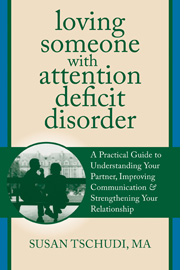By Susan Tschudi, MA
Clients who have ongoing problems in key relationships—with family, friends, coworkers, or a combination—can create frustration for the therapist and hinder any therapeutic progress, especially when the same maladaptive patterns are repeated.
I have noticed that people long for a sense of relevance and connection with others in life. When a person continues with maladaptive patterns in key relationships, he may be feeling a lack of relevance and connectivity in his family, social group, or community and may be trying to achieve it in an unhealthy manner. The client’s dysfunctional and unsatisfying attempts to feel connected and important to others may feel better than nothing at all.
Perhaps he might search for relevance by creating scenarios that demand negative attention from others. The underlying message is, I only count when I have your attention. Another common endeavor would be trying to control the familial or social environment, which implies, The only time I matter is when I have control. While these approaches may work in the moment, the long-term outcome is unsatisfying and unfulfilling. Specific behaviors may include: emotional outbursts, arguments, ongoing and unresolved conflicts, resentments, sulking, and pouting. Families, friends, and coworkers soon tire of these behaviors.
Finding relevance and a sense of community in a healthy manner can be accomplished by discovering likeminded people who share the same interests, activities, and pursuits. One of my clients complained that she had no friends. She had expressed an interest in politics so I suggested that she volunteer for a local candidate. Not only did she enjoy the time spent manning the phones at the campaign headquarters, she received a lot of positive reinforcement from the other volunteers. Additionally, once she was able to experience a different outcome, she had a better level of insight regarding her previous behavior.
Other suggestions:
If your client likes to sing, encourage him to join a choir or a singing group.
Your client loves to read all of the newest books—how about a book club?
A sports fan? Find a community team to join.
If she is a patron of the arts or theater, encourage her to volunteer to paint sets or hand out programs.
By brainstorming with the client, the therapist is able to demonstrate that a sense of connection can be achieved in a satisfying and fulfilling manner. As a result, the client may find more motivation to let go of the previous unhealthy behaviors.
 Susan Tschudi, MA, is a licensed marriage and family therapist in private practice in Westlake Village, CA, and adjunct professor of psychology at Pepperdine University. As a relationship expert, she specializes in helping couples achieve marital success. She also speaks both nationally and internationally on the subject of attention deficit disorder and relationships. Visit www.lovingsomeonewithadd.com for more information.
Susan Tschudi, MA, is a licensed marriage and family therapist in private practice in Westlake Village, CA, and adjunct professor of psychology at Pepperdine University. As a relationship expert, she specializes in helping couples achieve marital success. She also speaks both nationally and internationally on the subject of attention deficit disorder and relationships. Visit www.lovingsomeonewithadd.com for more information.

 2024 Peace Playbook: 3 Tactics to Avoid Clashes with Your Partner
2024 Peace Playbook: 3 Tactics to Avoid Clashes with Your Partner